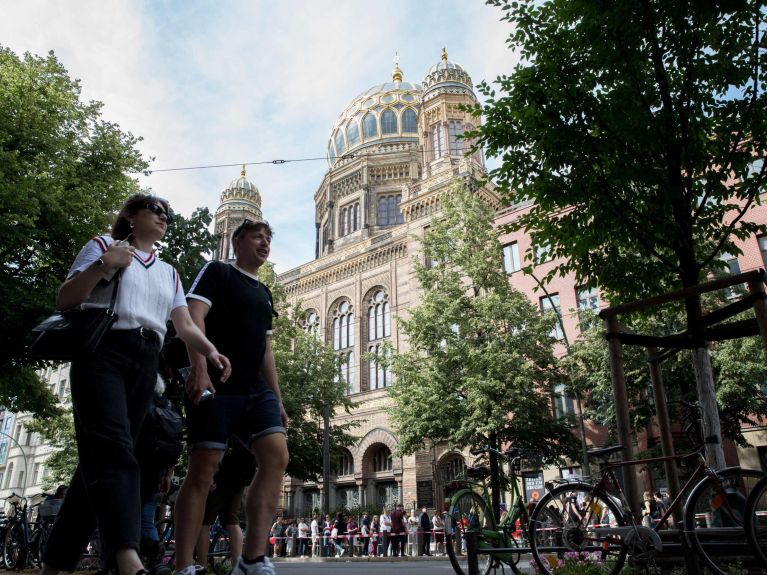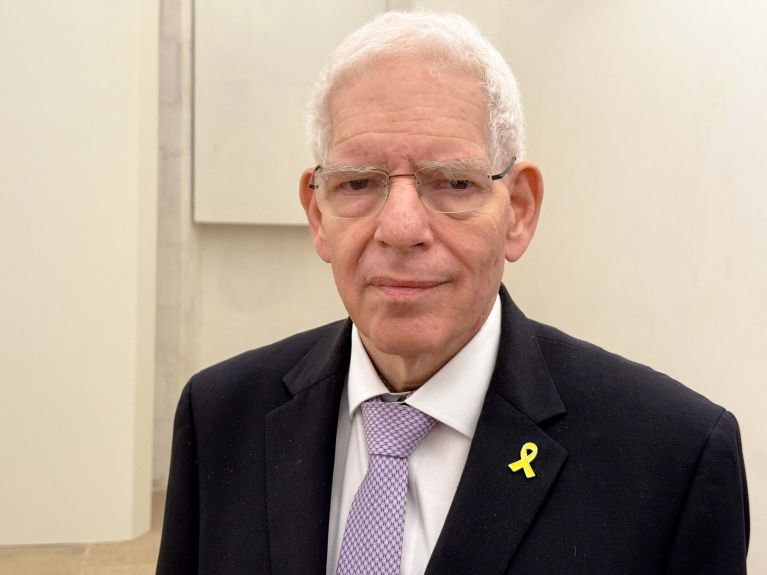75 years of the Central Council of Jews in Germany
Founded as a provisional arrangement in 1950, the organisation evolved to become an institution: the Central Council represents Jewish life, builds bridges and strengthens democracy.

The site of its foundation was deeply symbolic: the “Philanthropin” in Frankfurt, which was formerly one of the country’s leading Jewish schools. On 19 July 1950, Jewish community leaders established a new association there to represent Jewish interests: the Central Council of Jews in Germany.
Five years after the Shoah, the idea was for an umbrella organisation to initially bring order to a period of transition. This is because many communities regarded themselves at first as “transitional communities”, with many of their members wanting to emigrate - primarily to the USA and Israel. The historian Julius Schoeps sums up the situation in which Jews found themselves at the time: “In those early years after 1945, nobody thought there would ever be Jewish life in Germany again.”
A provisional arrangement becomes an institution
Over time, the organisation’s mandate changed. What began as a provisional arrangement evolved to become the political, social and religious voice of the Jewish community in Germany. Today, the Central Council brings different religious dominations together under one roof and represents around 105 communities with some 100,000 members.
When Germany reunified in 1990, the five East German associations were incorporated into the Central Council, and in 1999 the Leo-Baeck-Haus in Berlin became its headquarters. This also reflects how Jewish life has normalised again in Germany - and the role the Central Council plays as a bridge between communities, politics and civil society.
More recent milestones include the Jewish military chaplaincy treaty in 2019 and the appointment of Zsolt Balla as the first federal military rabbi of the German armed forces in 2021. The Jewish Academy, a place for Jewish thought and public debates, is currently being built in Frankfurt. The topping-out ceremony was held in 2024 and the Academy is scheduled to open in the summer of 2026.

Its mission: protection, education, dialogue
Central Council President Josef Schuster summarises the organisation’s goal: “We have been committed to democracy for 75 years.” And adds that this doesn’t apply only to Jews, but to all citizens in Germany.
On the occasion of its anniversary, numerous eminent individuals paid tribute to the Council’s important role. Federal President Frank-Walter Steinmeier described the Central Council as “a leading voice for Jews and a guarantor of democratic values” - and said he was “profoundly grateful” for the founders’ decision to rebuild Jewish life in Germany. Federal Chancellor Friedrich Merz emphasised society’s responsibility: “Germany must be a safe space for Jews. Let’s ensure this is the case.” He also said that “Jewish life is a part of us.”
What this means in practice is that the Central Council serves as a political point of contact and negotiation partner, establishes educational programmes, expands dialogue formats - and is a port of call whenever Jewish life in Germany is threatened. At the same time, it creates spaces in which the diversity of Jewish identity is visible: there are orthodox, conservative and liberal movements - which in the Central Council largely take the form of “unified communities”.


